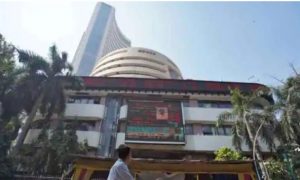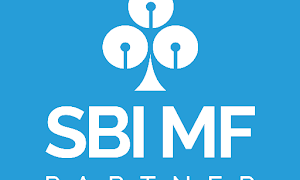RBI has defined various types of damages of currency notes and the process to replace them.
Even if digital payments have registered a phenomenal rise in their usage, use of currency notes is still required depending on the day-to-day situations. On several occasions you may get a note from an ATM, bulk payment or elsewhere, which is soiled or torn. In these cases, some try to use them by hiding in a note bundle or a local vegetable market where daily transactions work in circulation.
However, many people are not aware that the banking system in India allows the exchange of damaged currency notes. There are clear guidelines issued by the Reserve Bank of India in this regard.
Under the facilities for exchange of soiled and mutilated currency notes, RBI has defined various types of damages of currency notes and the process to replace them.
Read More: What Is KYC? Here’s How To Open Bank Account With Video KYC
How to exchange soiled notes in bank?
Soiled Notes
Soiled notes are those which have become dirty and slightly cut. Notes which have numbers on two ends, i.e. notes in the denomination of Rs.10 and above which are in two pieces, are also treated as soiled notes.
Exchange of soiled notes
The cut in such notes should, however, not have passed through the number panels. All these notes can be exchanged at the counters of any public sector bank branch, any currency chest branch of a private sector bank or any issue office of the RBI. There is no need to fill any form for doing this.
How to exchange mutilated currency notes?
Mutilated notes
Notes which are in pieces and/or of which the essential portions are missing can also be exchanged. Essential portions in a currency note are name of issuing authority, guarantee, promise clause, signature, Ashoka Pillar emblem/portrait of Mahatma Gandhi, watermark.
Read More: PM-KISAN 13th Installment of Rs 2,000 Likely to Come Before Holi, Check Your Name in the List
Exchange of mutilated currency notes
Refund value of these notes is, however, paid as per RBI (Note Refund) Rules. These can also be exchanged at the counters of any public sector bank branch, any currency chest branch of a private sector bank or any issue office of the RBI without filling any form.
Other facilities for exchange
TLR (Triple Lock Receptacle)
To suit public convenience, the exchange facility for mutilated notes is also offered through TLR (Triple Lock Receptacle) covers. People can obtain from the Enquiry Counter of the Reserve Bank a TLR cover and put their notes in the cover with particulars, such as, name, address, denominations of notes deposited, etc. filled in the columns provided on the cover, close it and deposit it in a box called Triple Lock Receptacle against issue of a paper token.
This box is kept at the enquiry counter at each issue office of the Reserve Bank. The admissible exchange value of the mutilated notes will be remitted by means of a bank draft or a pay order. Mutilated notes can also be sent to any of the RBI offices by registered/insured post.
Excessively soiled, brittle, burnt notes
Notes which have become excessively soiled, brittle or are burnt and, therefore, cannot withstand normal handling can be exchanged only at the issue office of the RBI.
Deliberately cut notes
The notes, which are found to be deliberately cut, torn, altered or tampered with, if presented for payment of exchange value will be rejected.
However, RBI has stated that although it is not possible to precisely define deliberately cut notes, a close look at such notes will clearly reveal any deliberate fraudulent intention, as the manner in which such notes are mutilated will follow a broad uniformity in the shape/location of missing portions of the notes, especially when the notes are tendered in large numbers.
Other rules
Notes presented in small numbers: Where the number of notes presented by a person is up to 20 pieces with a maximum value of Rs 5000 per day, banks should exchange them over the counter, free of charge.
Notes presented in bulk: Where the number of notes presented by a person exceeds 20 pieces or Rs 5000 in value per day, banks may accept them, against receipt, for value to be credited later. Banks may levy service charges.
RBI offices which provide exchange facilities
The facilities are provided at the counters of the RBI’s Regional Offices located at Ahmedabad, Bangalore, Belapur (Navi Mumbai), Bhopal, Bhubaneswar, Chandigarh, Chennai, Guwahati, Hyderabad, Jaipur, Jammu, Kanpur, Kolkata, Lucknow, Mumbai, Nagpur, New Delhi, Patna and Thiruvananthapuram and a currency chest managed by the Bank at Kochi.





































